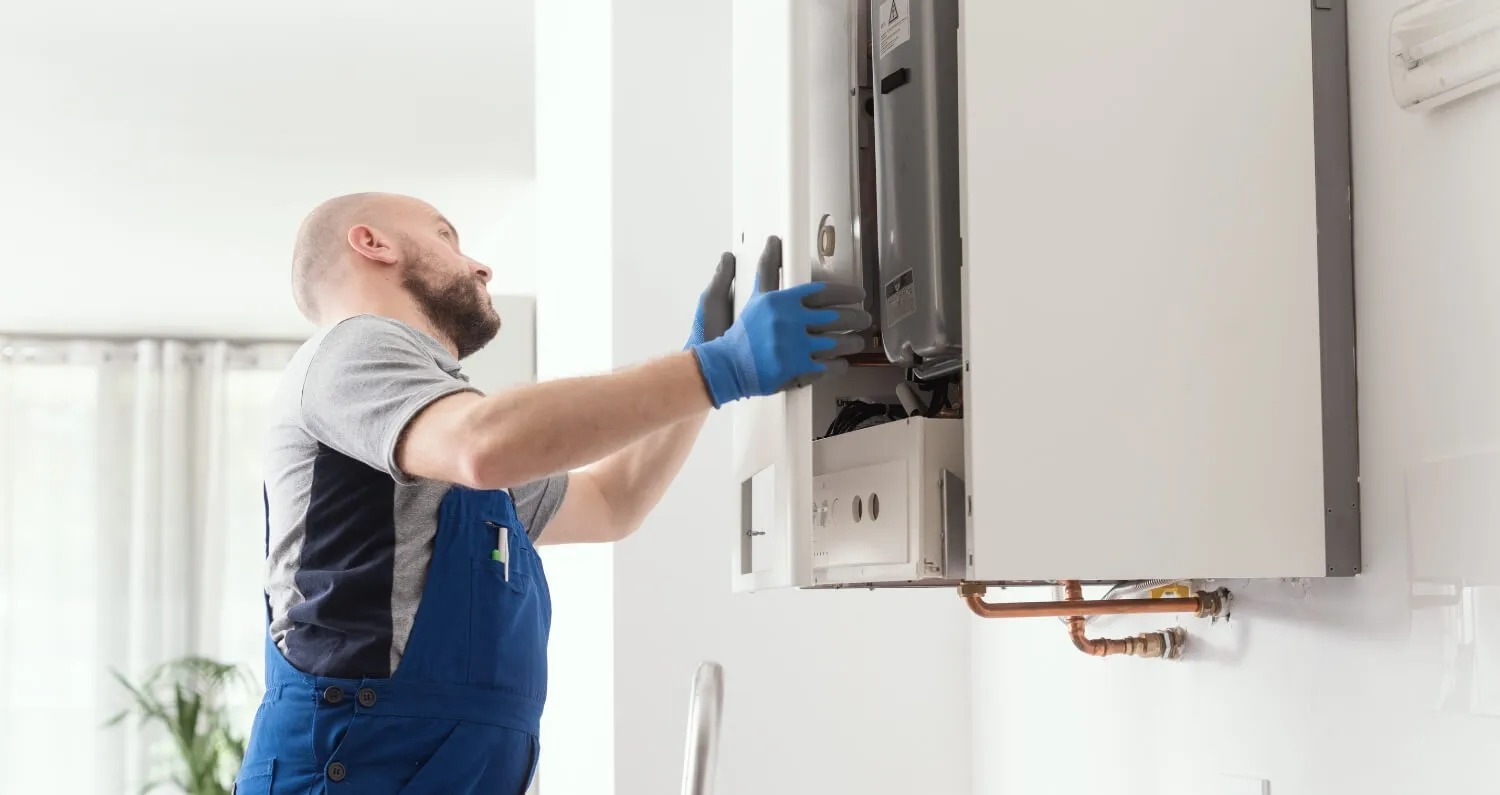Ensuring the safety and efficiency of your home’s boiler is critical, not only for the comfort of your household but also for preventing potential hazards.
In the UK, where boilers are an integral part of home heating systems, regular maintenance and safety checks are indispensable. This guide outlines key aspects of boiler safety and maintenance tailored for homeowners.

Understanding Your Boiler
The first step in boiler safety is understanding the type of boiler you have. There are three main types of boilers in the UK: combi, system, and conventional.
Each type operates differently and may require specific maintenance steps. Familiarise yourself with your boiler’s manual for model-specific guidance.
Regular Maintenance Checks
Regular maintenance is vital for the longevity and safety of your boiler. Here are some key aspects to focus on:
- Annual Servicing: It is recommended that you have your boiler serviced annually by a Gas Safe registered engineer. This service includes checking for leaks, assessing the pressure, inspecting the flue, and ensuring all components are functioning correctly.
- Visual Inspections: Between professional services, conduct regular visual inspections. Look for any signs of leaks, cracks, or unusual noises. Also, check the pressure gauge to ensure it’s within the recommended range.
- Radiator Bleeding: To ensure efficient heating, bleed your radiators annually. This process removes trapped air, which can impede heat distribution.
Financial Considerations
Maintaining a boiler can be costly, and sometimes, the need for a replacement or major repairs can arise unexpectedly. This is where the question of how to get a boiler on finance becomes relevant.
Many service providers offer financing options, allowing homeowners to spread the cost of a new boiler over a period of time. Always consider the interest rates and total repayment amount when opting for finance.
Safety First: Recognising Warning Signs
It’s crucial to be aware of the warning signs that indicate potential safety issues with your boiler:
- Carbon Monoxide Danger: Carbon monoxide (CO) is a deadly gas that can be emitted by faulty boilers. Install a CO alarm near your boiler and test it regularly. Symptoms of CO poisoning include headaches, dizziness, nausea, and confusion.
- Water Leaks: Persistent water leaks can lead to structural damage and electrical hazards. If you notice any leaking, contact a professional immediately.
- Unusual Noises: Strange noises like banging, whistling, or gurgling can indicate a problem with your boiler. It could be something simple like air in the system or something more serious like a pump failure.
Upkeep and Efficiency
To ensure your boiler operates efficiently, consider the following tips:
- Thermostat Settings: Adjust your thermostat settings according to the season to optimise energy use.
- Insulation: Proper insulation in your home can reduce the workload on your boiler, thus extending its life.
- Power Flushing: Over time, sludge can build up in your system, reducing efficiency. Power flushing cleans the system and improves performance.
Preparing for Winter
Winter is the peak time for boiler usage. To prepare, check that your boiler is in optimal condition before the cold season starts. This includes ensuring that all servicing is up to date and that any minor issues are resolved.
Embracing Technology
Consider upgrading to a smart thermostat, which allows you to control your heating remotely and can lead to significant energy savings. Modern boilers also come with advanced features for better efficiency and safety.
The Final Word: Keeping Warm and Safe
Boiler safety and maintenance are not just about ensuring warmth in your home; they’re about safeguarding your family from potential hazards.
Regular checks, understanding the warning signs, and utilising financial options like boiler finance responsibly are key components of responsible homeownership. By following these guidelines, you can enjoy a warm, safe, and efficient home throughout the year.



